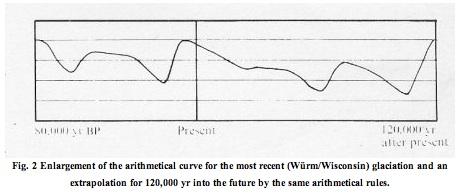A study correlating economic and political changes in China's Middle Kingdom has found that warmer climate benefited society. By contrast, a fall of temperature of 2C was correlated with conflict and famine.
"The collapses of the agricultural dynasties of the Han (25-220), Tang (618-907), Northern Song (960-1125), Southern Song (1127-1279) and Ming (1368-1644) are closely associated with low temperature or the rapid decline in temperature," say the academics led by the Chinese Academy of Sciences in Beijing.
Historical studies are problematic in two ways, and you have to be careful not to fall into one of two obvious elephant traps. One is that politics very much determines whether a society gets out of a pickle or goes into a decline. So deterministic views such as Jared Diamond's in Guns, Germs and Steel and Collapse tend to underestimate this capacity for change.
The other (not entirely unrelated) trap is that we're no longer at the mercy of nature, and thanks to technology have tamed it to a significant degree. We don't have a "peak wood" or a "peak whaleblubber" crisis today. Even the IPCC grudgingly admits as much. "The marginal increase in the number of people at risk from hunger due to climate change must be viewed within the overall large reductions due to socio-economic development."
Well, obviously. Although slight increases in temperature (and CO2) result in higher productivity, wealth remains a much bigger factor. It's poverty that makes people miserable, not the climate. And lifting a couple of billion people from messing about in the mud, and into a modern, largely urban, technological society effectively removes them from the risks our great-great-grandparents used to worry about.
The idea that tiny changes in climate (either way) cause catastrophic effects, against which we're powerless, is really the last in a line of medieval superstitions. As Roddy Campbell writes here, if you'd asked people in 1900 what would happen if temperatures rose by one degree, you'd have got the same prognosis you hear from the "bedwetters" today: "hunger, war, migration, desertification and water shortages in 2010.
.. Pretty grim, wouldn t you think?" Yet here we are, and life expectancy is higher than ever. The fear of science and technological innovation runs so deep with some people, that self-flagellation is always preferred.
Even significant long-term falls in temperature - such as the ones we can expect quite soon - can be made tolerable by adaptation and technological innovation. Nigel Calder this week revisited the study of Milankovitch cycles he published while editor of Nature in 1974.

The extrapolation suggests that the next ice age began five thousand years ago and it'll get quite chilly in the next 120,000 years.
"This ice age looks like a relatively slow starter," Nature reported. "The theory, though, is of widespread snow that fails to melt in the vicinity of 50 N in summer, so that large areas of North America, northern Europe and the USSR will have to be encrusted with ice sheets during the next few thousand years."
On the other hand, the Sahara would return to being warm and wet, as it was during the last ice age, and would be fertile again.
Even life above the 50 line (which includes the whole of the UK) need not be grim. I suggest a row of nuclear power stations at Hadrian's Wall, discharging warm water around the coastline and inland via a heating/irrigation network. That should keep things toasty.
You may have better suggestions. (By Andrew Orlowski, Environment)
Related News
Photos
More>>trade
market
finance
- Chinese Dinosaur Fossils Make North America Debut in Cincinnati
- Human Remains from China Indicate Modern Human Emerged Much Earlier Than
- CAS to Strengthen International Cooperation in 12th Five-year Plan Period
- NATURE: China Pushes for the Proteome
- In Ground-Based Astronomy s Final Frontier, China Aims for New Heights





